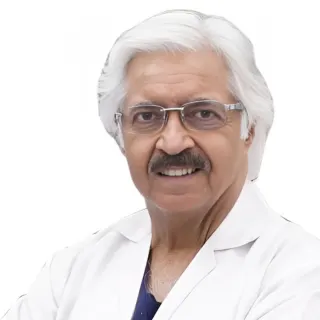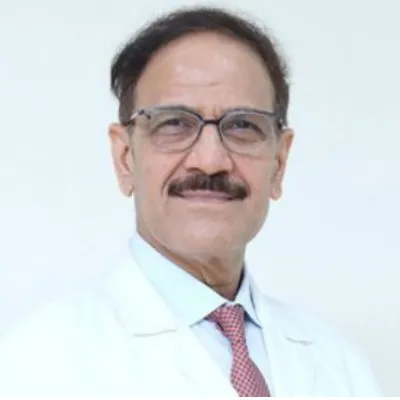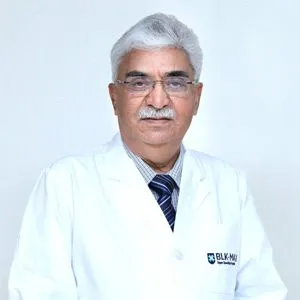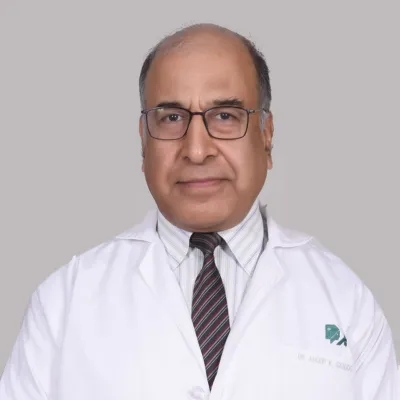Top Lung Transplant Surgeons in Artemis Hospital Gurgaon
 09 January,2026
Read More
09 January,2026
Read More
Starting From: USD 6267-13637
Procedure Type: Surgical Procedure
Hospitalization Days: 5-10 Days
Procedure Duration: 2-6 Hrs
Recovery Time: 4-8 Weeks
Success Rate: 95%
Aneurysm surgery offers advanced treatment options, such as endovascular coiling and surgical clipping, at a fraction of international costs. The aneurysm surgery cost in India varies between USD 6,267 and USD 13,637. Performed by expert neurosurgeons and vascular specialists, the procedure is ideal for patients with brain or aortic aneurysms at risk of rupture. With NABH-accredited hospitals, modern technology, and high success rates, India provides safe, affordable, and timely care. Packages typically include surgery, hospitalization, diagnostics, and follow-up, making it a preferred choice for both domestic and international patients.
An aneurysm is a balloon-like bulge in a weakened area of a blood vessel. If it grows too large, it can rupture, causing life-threatening bleeding or stroke. Common types include cerebral aneurysms (located in the brain) and aortic aneurysms (located in the chest or abdomen). While some aneurysms remain symptomless, others may cause pain or neurological issues. Early diagnosis and timely surgical intervention are key to preventing serious complications.
India offers affordable and high-quality treatment, making it a preferred destination for medical tourism. Understanding the condition and the aneurysm surgery cost in India helps patients make informed, timely decisions.
Always consult a certified neurosurgeon or vascular expert to determine if aneurysm surgery is necessary based on your condition and risk profile.
Aneurysm surgery price in India depends on the hospital, city, type of aneurysm, treatment approach, and the surgeon’s expertise:
These affordable aneurysm surgery estimates in India typically cover standard treatment, which includes surgery, hospitalization, diagnostics, and follow-up care. However, if the patient requires advanced procedures, such as a stent graft or flow diverter, or faces post-surgical complications, the overall cost may rise significantly.
The factors affecting aneurysm surgery cost in India can vary significantly based on several important factors:
Here’s the average aneurysm surgery cost in India across major Indian cities. USD conversions are approximate and may vary slightly with exchange rate fluctuations:
|
City |
Min Cost (INR) |
Max Cost (INR) |
Min Cost (USD) |
Max Cost (USD) |
|
New Delhi |
INR 5,40,000 |
INR 11,00,000 |
USD 6,267 |
USD 12,767 |
|
Mumbai |
INR 5,55,000 |
INR 11,50,000 |
USD 6,441 |
USD 13,347 |
|
Bengaluru |
INR 5,75,000 |
INR 11,95,000 |
USD 6,674 |
USD 13,869 |
|
Chennai |
INR 5,60,000 |
INR 11,80,000 |
USD 6,500 |
USD 13,695 |
|
Hyderabad |
INR 5,80,000 |
INR 11,85,000 |
USD 6,732 |
USD 13,753 |
|
Kolkata |
INR 5,60,000 |
INR 11,00,000 |
USD 6,500 |
USD 12,767 |
|
Pune |
INR 5,35,000 |
INR 11,50,000 |
USD 6,209 |
USD 13,347 |
|
Chandigarh |
INR 5,50,000 |
INR 11,85,000 |
USD 6,441 |
USD 13,753 |
|
Gurugram |
INR 5,40,000 |
INR 11,75,000 |
USD 6,267 |
USD 13,637 |
Cities like Delhi, Mumbai, and Bengaluru often have higher aneurysm surgery package costs in India due to the presence of top-tier hospitals, expert surgeons, and advanced technology. In contrast, Tier-2 cities like Chandigarh and Kolkata offer more affordable options while still maintaining strong medical standards.
However, the final treatment cost can vary significantly based on the type of aneurysm, patient condition, hospital infrastructure, and specialist involvement. For the most accurate estimate, it's recommended to consult directly with a hospital coordinator or treating specialist.
Here is a comparative overview of aneurysm surgery treatment costs across various countries:
|
Country |
Approx. Range (USD) |
|
India |
USD 6,267 – USD 13,637 |
|
Turkey |
USD 10,000 – USD 30,000 |
|
Thailand |
USD 10,000 – USD 15,000 |
|
UAE |
USD 15,000 – USD 25,000 |
|
UK |
USD 30,000 – USD 70,000 |
|
USA |
USD 50,000 – USD 1,00,000 |
Aneurysm surgery in India is among the most affordable globally, offering advanced treatment at NABH-accredited hospitals and with internationally trained surgeons. Patients choose India for cutting-edge procedures, such as coiling and clipping, combined with high-quality care at a fraction of the global costs.
Patients with hypertension, diabetes, or other health conditions may require additional tests, increasing overall pre-surgery expenses.
Readmissions due to complications such as stroke, infection, or graft issues can further increase costs.
Most health insurance plans in India cover aneurysm surgery, including hospitalization, ICU care, and surgical procedures. Check your policy for room rent limits, caps, and pre-approval rules.
If you're uninsured, many hospitals offer zero-interest EMI plans through partnered banks, making treatment more affordable without financial stress.
Here are some practical ways to reduce aneurysm surgery costs in India:
These strategies not only ease the financial burden but also help ensure a smoother treatment journey.
MediJourney simplifies access to world-class aneurysm surgery in India, offering patients clarity, coordination, and confidence throughout their treatment journey. We partner with renowned hospitals and experienced neurosurgeons and vascular specialists to provide all-inclusive aneurysm surgery packages that emphasize safety, precision, and affordability.
From your first consultation through surgery, recovery, and post-operative care, our team handles every detail—including visa assistance, travel coordination, hospital bookings, and medical follow-ups. We ensure transparent pricing for aneurysm surgery costs in India, priority scheduling, and personalized support, without redirecting you to hospital websites.
Whether you are exploring the aneurysm surgery price in India, seeking affordable aneurysm surgery in India, or need clarity on the aneurysm treatment cost in India, MediJourney provides trusted guidance. Patients also gain insight into the average aneurysm surgery cost in India, key factors affecting aneurysm surgery cost in India, and structured aneurysm surgery package cost in India—all tailored to individual clinical needs.
Answer: While most hospitals offer aneurysm surgery as a fixed package, several necessary costs may be excluded, such as:
Always ask the hospital for a detailed breakdown of the aneurysm surgery cost in India, along with a list of exclusions.
Answer: Yes, aneurysm surgery prices in India are covered under most comprehensive health insurance plans in India. These include surgeries for brain (cerebral) and aortic aneurysms.
However, check for the following conditions:
Answer: After aneurysm surgery, long-term medication is often required to prevent complications, manage underlying conditions, and support recovery. The average aneurysm surgery cost in India typically ranges between INR 1,000 and INR 4,000, depending on the patient’s condition and type of aneurysm treated.

Chairman
Interventional Cardiologist
Fortis Escorts Heart Institute, New Delhi

Chairman
Interventional Cardiologist
BLK-Max Super Speciality Hospital, New Delhi

Director
Cardiologist, Interventional Cardiologist
Max Super Speciality Hospital, Saket, New Delhi

Chairman
Cardiac Electrophysiologist, Interventional Cardiologist
BLK-Max Super Speciality Hospital, New Delhi

Consultant
Interventional Cardiologist
Indraprastha Apollo Hospital, New Delhi

Senior Consultant
Cardiothoracic and Vascular Surgeon
Indraprastha Apollo Hospital, New Delhi
Doctor of Pharmacy
Dr. Deepanshu Siwach is a skilled clinical pharmacist with a Doctor of Pharmacy degree.?He has 4+?years of experience and has worked with thousands of patients. He has been associated with some of the top hospitals, such as Artemis Gurgaon.
Dr. Deepanshu Siwach is a skilled clinical pharmacist with a Doctor of Pharmacy degree.?He has 4+?years of experience and has worked with thousands of patients. He has been associated with some of the top hospitals, such as Artemis Gurgaon....
Dr. Aseem Ranjan Srivastava is an experienced Pediatric Cardiothoracic Surgeon specializing in Minimal Access and Robotic Cardiac Surgery. He strongly recommends prompt corrective repair when possible....
The Art of Effective Communication
 09 January,2026
Read More
09 January,2026
Read More
 02 January,2026
Read More
02 January,2026
Read More
 30 December,2025
Read More
30 December,2025
Read More
 24 December,2025
Read More
24 December,2025
Read More
 23 December,2025
Read More
23 December,2025
Read More
 17 December,2025
Read More
17 December,2025
Read More